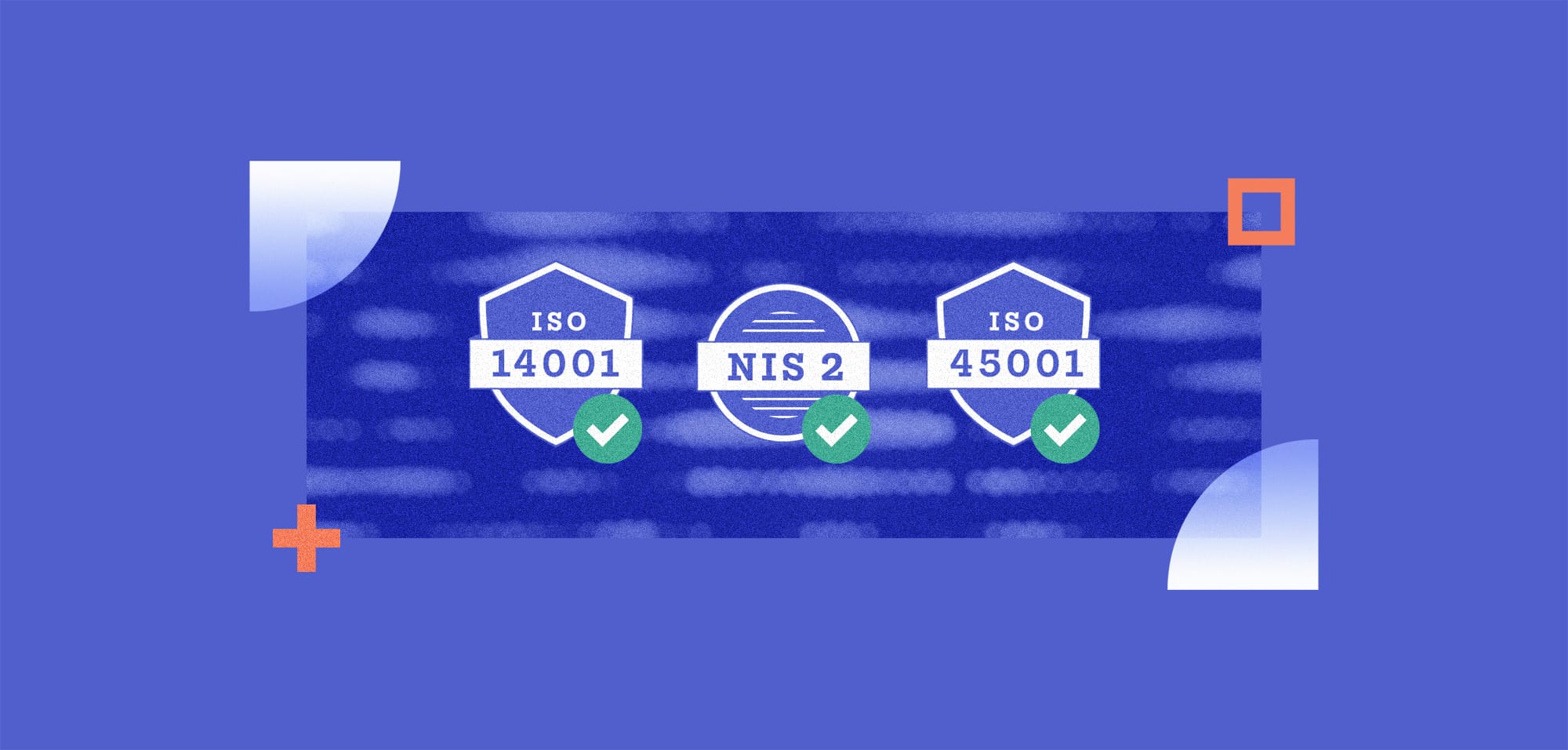
Thriving, Not Just Surviving: Prioritising Mental Well-being in the Remote SaaS Workplace
Table Of Contents:
Are you feeling trapped at your desk even when working from home? You’re not alone.
At ISMS.online, we’ve seen a dramatic shift towards remote work in recent years, and it’s been a positive change for our company culture. The flexibility of remote work has allowed us to attract top talent from around the world, and we’ve seen a boost in employee satisfaction and productivity. However, we’ve also recognised the importance of addressing the mental well-being challenges that can come with a remote environment. Here are two common struggles:
The “Always On” Culture:
Remote work can blur the lines between work and personal life, making it difficult to disconnect. This constant connectivity can lead to feelings of stress and burnout. According to a recent Mental Health First Aid England report, around half of UK workers report feeling burned out, highlighting the prevalence of this issue [1].
Social Isolation:
The lack of physical interaction with colleagues can lead to feelings of isolation and loneliness. This social isolation can negatively impact well-being, creativity, and collaboration. Mental Health First Aid England also reports that only 10% of employees seek help for mental health issues, suggesting a potential barrier to addressing these challenges [1].
This Mental Health Awareness Week, we want to share some actionable strategies to help everyone thrive in a remote SaaS work environment.
Strategies for Success: Building a Remote Work Environment Where Everyone Thrives
Combating these challenges requires a proactive approach. Here are some actionable strategies for both employers and employees in the remote SaaS industry that go beyond just surviving and help you thrive:
Setting Boundaries:
- Encourage clear work hours and stick to them, creating a predictable schedule that frees up personal time to recharge.
- Promote tools like “Do Not Disturb” functions and schedule breaks throughout the day to maintain focus and avoid burnout.
- Consider flexible working schedules to accommodate individual needs. This is a cornerstone of remote work, allowing for better work-life balance and a happier workforce.
Communication is Key:
Highlight your company’s commitment to open communication by fostering regular interaction. We are on Microsoft Teams throughout the working day, and each team has weekly or even daily stand-up meetings. These not only keep everyone on the same page but also provide informal opportunities for social interaction, building stronger team connections.
Foster Connection:
While virtual connections are essential, don’t underestimate the power of face-to-face interaction. We recently organised a team day at our new office in Brighton, and it was amazing to see the boost in morale and creativity from those in-person interactions. We’re all looking forward to our next one! (Plus, everyone enjoyed the excellent food and after-work drinks for socialising)
Check-in Regularly:
ISMS.online uses staff surveys, feedback forms, and company days to check in with staff and gauge both anonymous and personal responses from our employees. This feedback loop allows us to identify areas for improvement and constantly refine our approach to well-being, ensuring a positive and supportive work environment.
Management should regularly check staff well-being and ensure they take action on any responses to address any concerns proactively.
Create a Dedicated Workspace:
Establish a physical separation between your work and personal life. Dedicate a specific area in your home for work tasks, and avoid working from your bed or sofa. This physical separation helps you switch off after work and prevents work from intruding on your personal time.
Take Breaks!
Schedule short walking breaks throughout the workday to get fresh air and sunshine. Aim for at least 5-10 minutes every hour. According to the Mayo Clinic, even a short burst of exercise can improve mood, reduce stress, and boost creativity [2].
Maintain a Healthy Lifestyle:
Looking after yourself physically is directly linked to your mental well-being. Here are some tips to keep your energy levels up and focus sharp:
- Eat a balanced diet: Focus on fruits, vegetables, and whole grains.
- Get regular exercise: Aim for at least 30 minutes of moderate-intensity exercise most days of the week.
- Get enough sleep: Most adults need between 7 and 8 hours of sleep per night.
Practice Relaxation Techniques:
Techniques like mindfulness meditation and deep breathing can help reduce stress, improve focus, and enhance overall well-being. There are many free apps and online resources available, including:
- Headspace: https://www.headspace.com/ offers a variety of guided meditations for all experience levels.
- Calm: https://www.calm.com/ provides guided meditations, sleep stories, and relaxing music.
- NHS Moodzone: https://www.forumhealthcentre.nhs.uk/your-health/moodzone-stress-anxiety-and-depression This website from the UK’s National Health Service (NHS) offers free resources for managing stress, anxiety, and depression.
By implementing these strategies, we can move beyond simply surviving the remote work environment and create a space where everyone can thrive. A happy and healthy workforce is a productive workforce, leading to greater innovation and success for both employers and employees.
Additional Support
For further information and support, here are some valuable resources:
- Mind: https://www.mind.org.uk/ provides a wealth of information on mental health, including tips for managing stress and anxiety.
- Mental Health Foundation: https://www.mentalhealth.org.uk/ offers resources and support for workplace mental health.
- The Chartered Institute of Personnel and Development (CIPD): https://www.cipd.org/en/ provides guidance and best practices for employers on promoting employee well-being.
- The Samaritans: https://www.samaritans.org/ offers a listening service for anyone struggling emotionally, 24 hours a day, 365 days a year.
Building a Culture of Wellbeing: It Starts With Us
At ISMS.online, prioritising mental well-being is an investment not just in our employees but in the overall success of our company. By fostering a culture of open communication and implementing these strategies, we’re creating a remote work environment where everyone can thrive.
This Mental Health Awareness Week, let’s commit to caring for our mental well-being. By making small changes in our daily routines and creating a supportive environment, we can all build a thriving work life, no matter where we work from.
Source:
[1] Mental Health First Aid England: https://mhfaengland.org/mhfa-centre/blog/ten-workplace-mental-health-statistics-for-2023/
[2] Mayo Clinic: Exercise and stress reduction https://www.mayoclinic.org/healthy-lifestyle/stress-management/basics/stress-basics/hlv-20049495




